
On January 22, 2023, the Catholic Legal Immigration Network, Inc. (CLINIC), launched “Neighbors, Not Strangers,” a new digital storytelling initiative to spread the message that immigrants are not strangers to be feared, but neighbors to be encountered and embraced.
Read our press statement about the new project.
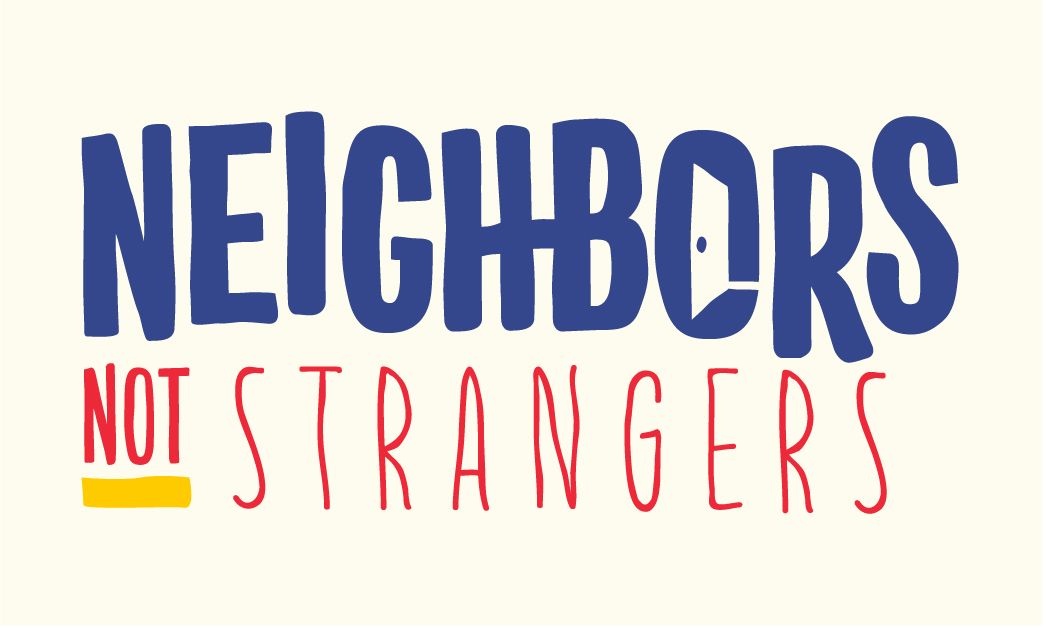
"Maria opened the envelope and gazed at the letter inside, her eyes blurry with tears.
After 15 years of waiting, it was finally here: the green card that would allow her to visit her ailing mother in Mexico and provide for her three children here in the U.S."
"Cradling the phone in his ear, Emre smiled as his new client began to speak. She had the exact same accent as his mother, who had fled Turkey 40 years ago from the same region.
As the client told her story, he pulled out a notepad and scribbled down the details of her case. ‘Persecution, religious minority,’ he underlined.”
“Abdul fingered the ragged document that he’d carried in his shirt pocket since the day he was evacuated from Afghanistan: a letter recommending him for Special Immigrant Visa status because he had worked as a driver for U.S. soldiers. He handed it to Lisa, the attorney.
‘Please, ma’am,' he said, in clearer English than she’d been expecting, ‘Can you help me get legal status so I can bring my family over?’”
As a network of over 450 community-based legal service organizations, the Catholic Legal Immigration Network, Inc., or CLINIC, represents a vast tapestry of stories like these: stories of successful immigration cases, family resilience, communities rising to the challenge of welcome, and legal organizations starting from the ground-up and becoming beacons of hope in their areas.
We believe these stories are powerful; in fact, we know they are.
Psychological research indicates that, while statistics and statements of fact matter for shaping opinions, it is stories, as well as personal encounter, that more often change hearts and move us to action. Stories engage our brains in a unique way to elicit empathy, identification with others’ experiences, and willingness to extend help.
For years CLINIC has used our blog, Stories of Immigration, to uplift narratives from our network. Now, with the help of the Catholic Communication Campaign at the U.S. Conference of Catholic Bishops, CLINIC is launching an enhanced blog, Neighbors, Not Strangers, with a distinct mission: to use digital storytelling to help the world see immigrants as neighbors to be encountered and embraced rather than strangers to be feared.
Twenty years ago, in 2003, the U.S. Conference of Catholic Bishops in collaboration with the Episcopal Conference of Mexico published Strangers No Longer: Together on the Journey of Hope, a pastoral letter to the people of the U.S. and Mexico reflecting on the challenges surrounding migration between the two countries and laying a foundation of Catholic social teaching on immigration in the region.
In that document, the bishops acknowledged how immigration is a benefit and blessing, enriching our common life, and that the U.S. had a flawed and failing immigration system. They laid out the principles that should undergird an immigration system that has the inherent, God-given dignity of migrants at its heart, with the corresponding duty of nations to control their borders for the common good of their citizens. It articulated a call for the U.S. church to foster unity and understanding among immigrants and native-born communities, and for local communities to rise to the challenge of becoming places of welcome for strangers, places where newcomers become neighbors.


“[Ours] is a faith that transcends borders and bids us to overcome all forms of discrimination and violence so that we may build relationships that are just and loving,” the bishops wrote.
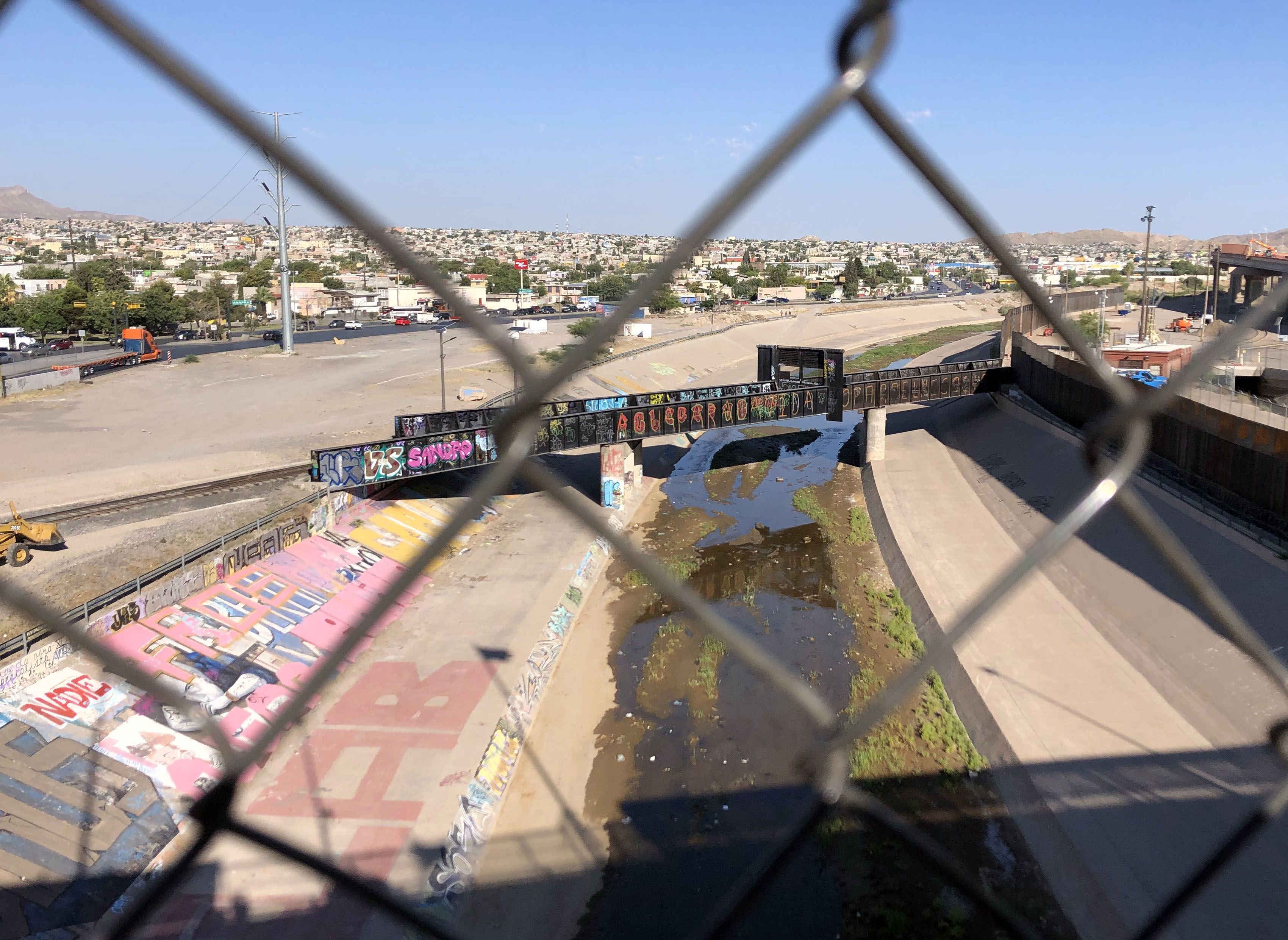
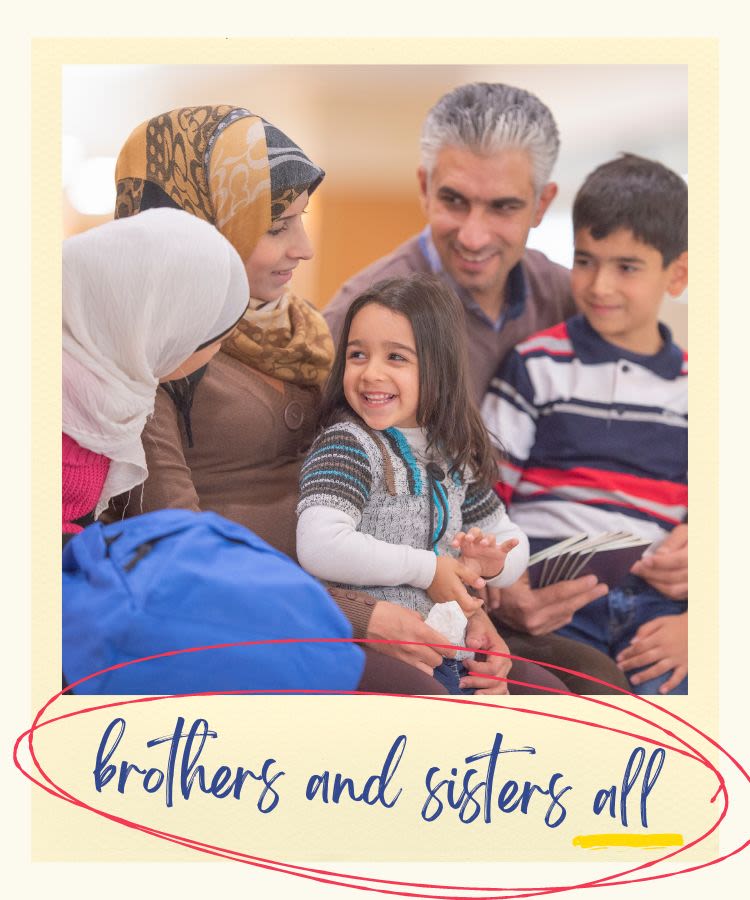
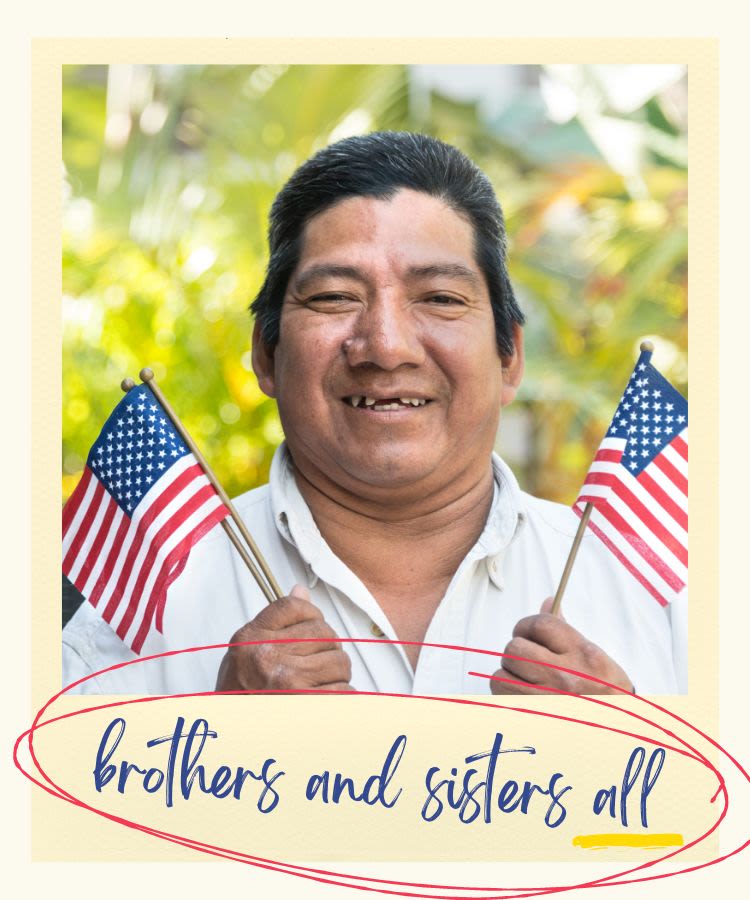

Since the publication of that document, the United States population has only grown more diverse and reflective of its origins as a nation of immigrants. Anti-immigrant rhetoric and sentiment remain prevalent, and efforts to reform the immigration system have stalled.
CLINIC’s new project, Neighbors, Not Strangers, will advance the vision of the bishops in Strangers No Longer by using storytelling to demonstrate how immigrants who arrive as strangers quickly become our neighbors, cherished members of our communities, often through the help of faith- and community-based organizations.
Legal and social service organizations in the CLINIC network show us what it means to encounter and welcome immigrants as neighbors; their experiences can be a guidepost for how communities can embrace the call to welcome.
“The CLINIC network is a witness to the strength and resilience of immigrant communities, the impact of a welcoming environment, and the power of legal assistance to change people’s lives,” says Anna Gallagher, CLINIC’s executive director.
“The stories from our network can be a catalyst to help move the Church forward in her mission to embody Christ’s invitation to embrace the stranger as if he or she were Christ himself.”
“Pope Francis is calling on the Church to embrace relational language – he calls us ‘brothers and sisters all,’” she continued. “We hear these phrases and repeat them lightly, but we need examples of what it means to live this out. Organizations and communities working with immigrants show us what it looks like to undergo that shift of heart and mind – to open our doors and hearts to those who seem different from us.”
CLINIC began as a small group of Catholic organizations responding to the legal needs of immigrants following the last major immigration reform bill passed in 1986. In 35 years, the network has grown to encompass a wide array of organizations that are diverse in faith but committed to the same vision of responding to migrants with compassion and creating policy that promotes migrants’ dignity.
The CLINIC network now represents the largest nonprofit immigration law organization in the U.S and the Church’s primary effort to address the legal needs of immigrants.
“In stories about immigrants, there is often a divide between ‘good’ vs. ‘bad’ immigrants, between ‘legal’ vs. ‘illegal,’” says Gallagher. “While, as a legal organization, we believe in the need to promote lawful immigration and build a just and humane immigration system, this project is ultimately about humanizing immigrants and those who serve them, to demystify the complex world of immigration by sharing concrete stories of those navigating the system.”
Laura Burdick has witnessed the growth of the network in her 25 years of work as a field support coordinator at CLINIC. In supporting the network’s capacity building, she has been in contact with hundreds of CLINIC affiliates and their clients over the years, hearing stories of success and breakthrough, but also heartbreak and struggle.
“CLINIC’s far-reaching network of passionate, grassroots service providers has so many amazing stories to tell about their clients, their communities, and their impact on individuals and families in the immigration system,” Burdick remarked.
“I hope CLINIC can tell more human impact stories about the consequences of our seemingly abstract and arcane immigration policies, and about the struggles and hard-won successes of so many immigrant brothers and sisters who strengthen our nation with their hard work and determination.”


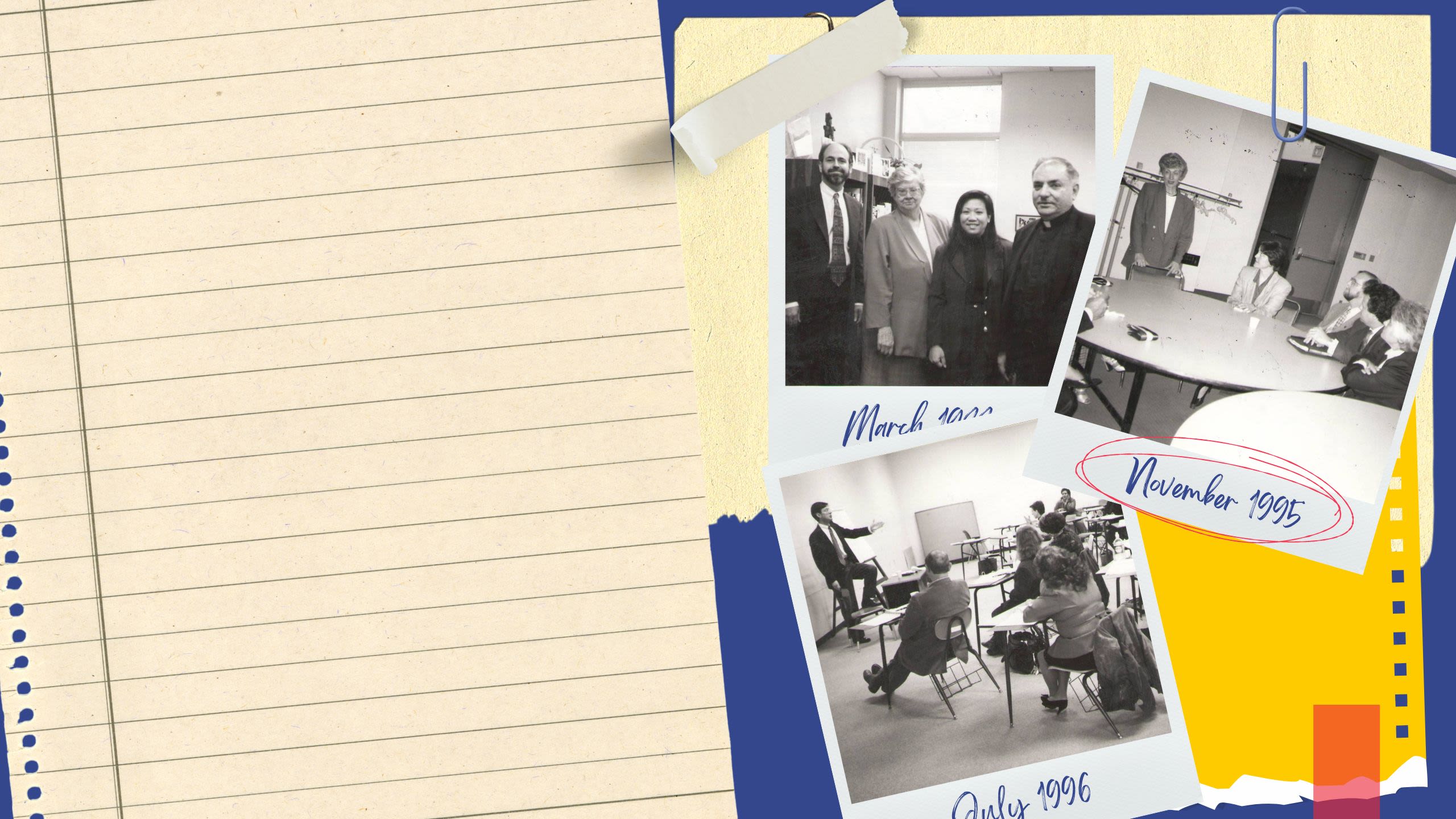
CLINIC is launching Neighbors, Not Strangers on the 20th anniversary of the release of Strangers No Longer, in a nod to the importance of that document and the need for continued progress in realizing its vision of a Church and society committed to welcoming the stranger and advocating for justice for immigrants.
“With our origins, mission, and 35 years of experience, CLINIC is well equipped to carry out this project,” says Gallagher. “We are so excited to launch this new forum for storytelling in service of the Church, society, and our immigrant brothers and sisters.”
Read More Stories
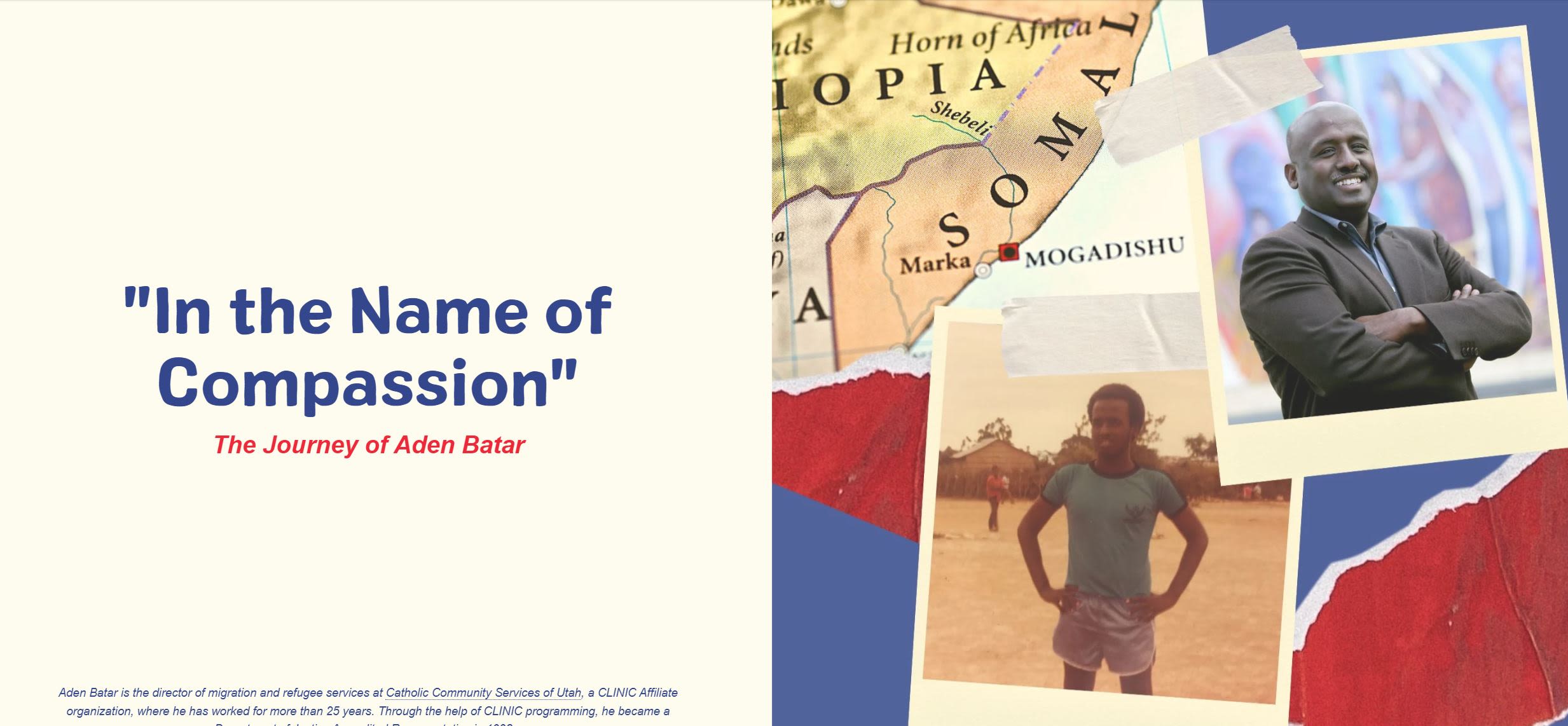
"In the Name of Compassion"
A Somali refugee finds safety in the United States, and the compassionate welcome he receives inspires a lifetime of work resettling other refugees.
CLINIC advocates for humane and just immigration policy. Its network of nonprofit immigration programs — over 450 organizations in 49 states and the District of Columbia — is the largest in the nation.

